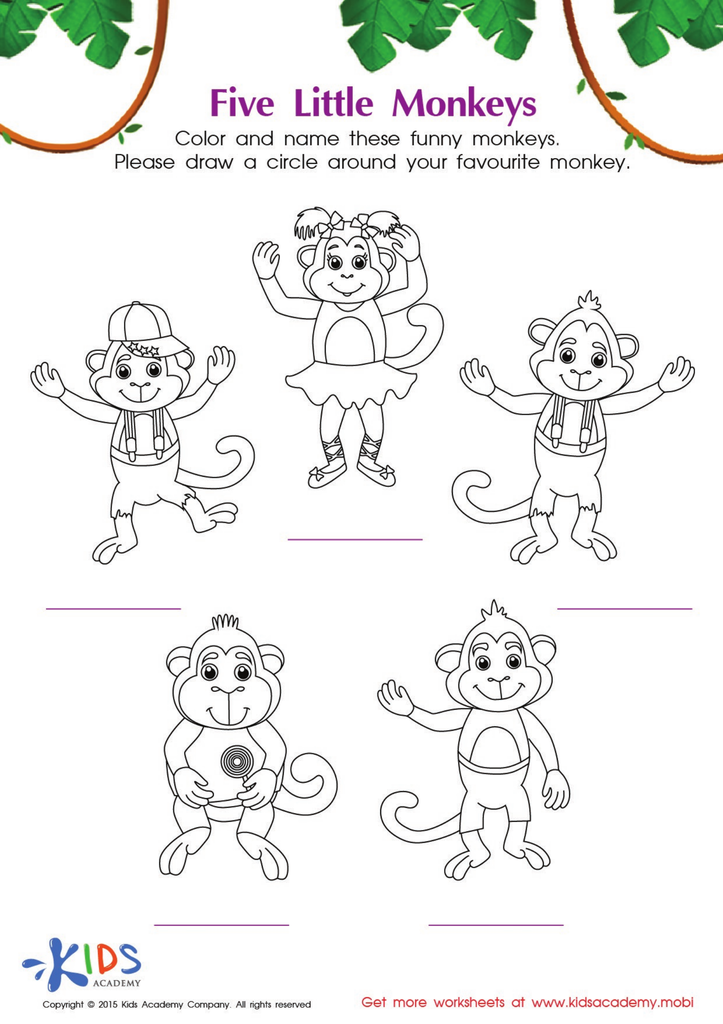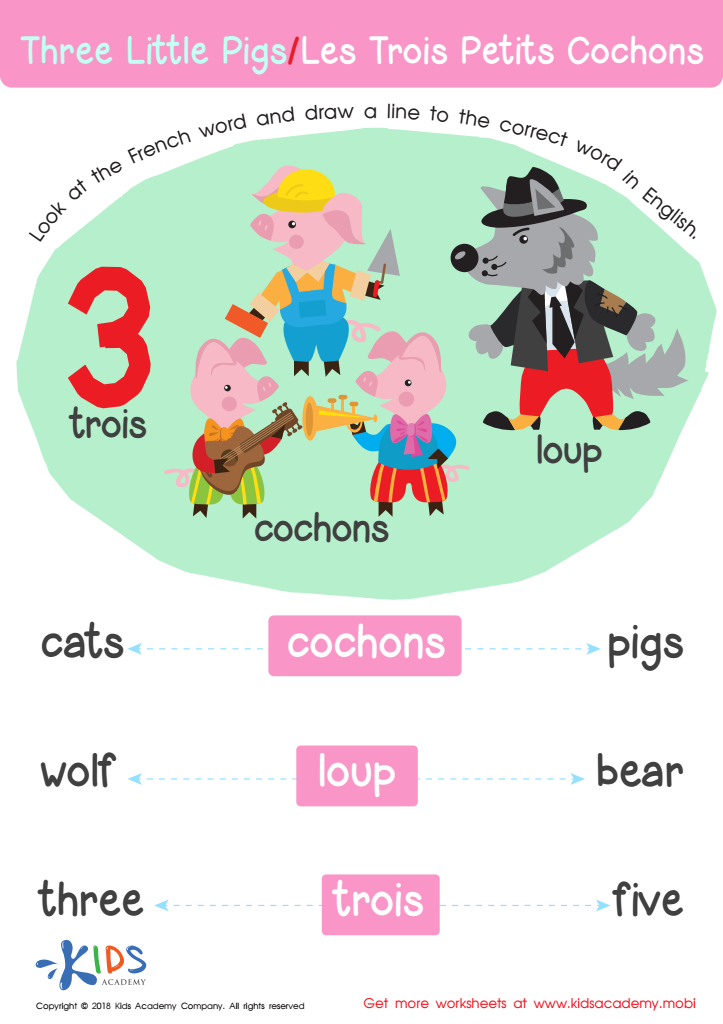Basic counting skills Reading Worksheets
4 filtered results
-
From - To
Discover our Basic Counting Skills Reading Worksheets, designed to make early math fun and engaging for young learners. Perfect for preschool and kindergarten students, these worksheets blend foundational reading and counting practice. Colorful illustrations and interactive tasks encourage kids to recognize numbers, count objects, and develop essential numeracy skills. Tailored to support homeschooling and classroom activities, our worksheets cater to diverse learning styles and ensure educational growth. Give your child a head start in their math journey with Kids Academy’s expertly crafted resources, and watch them build confidence while mastering basic counting concepts. Explore our collection today!


The Five Little Monkeys Coloring Worksheet


Three Little Pigs / Les Trois Petits Cochons Worksheet


Twinkle, Twinkle, Little Star – Coloring by Numbers
Basic counting skills are foundational for a child's overall mathematical development and everyday life management. These skills are not just about recognizing and reciting numbers; they encompass understanding quantity, order, and the concepts of more vs. less, which are essential for problem-solving and logical thinking. For parents and teachers, emphasizing basic counting skills is crucial because they serve as the building blocks for more advanced mathematical concepts like addition, subtraction, multiplication, and division.
From an educational perspective, early proficiency in counting can lead to greater confidence and success in mathematics as children move through school. It ensures they can keep up with curriculum demands and engage more fully with subsequent lessons. Spotting counting difficulties early allows for timely intervention, preventing later struggles that might affect a child's overall academic performance.
In practical life, counting skills help children in everyday activities such as sharing items equally, understanding time, managing pocket money, and making sense of numbers in the environment like phone numbers and addresses. Parents and teachers who prioritize these skills provide children with a strong numerical foundation, enabling them to navigate both academic challenges and daily tasks effectively. This support fosters an environment where children feel capable and competent, contributing to their overall developmental and educational success.

 Assign to My Students
Assign to My Students





















